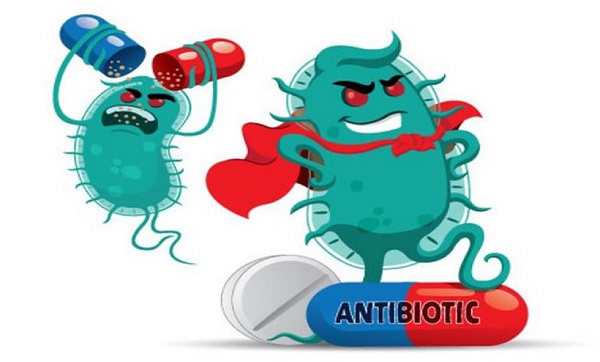
The National Agency for Food and Drug Administration and Control (NAFDAC) has intensified its efforts to combat Antimicrobial Resistance (AMR) in Nigeria by implementing stricter regulations and surveillance measures.
Deputy director and AMR-OH focal person at NAFDAC, Dr. Tunde Sigbeku made this announcement in Lagos during a five-day training session for journalists, civil society organisations (CSOs) and community-based organisations (CBOs) focused on AMR.
The training was organised by the Fleming Fund Country Grant (FFCG II), a project supported by the UK Government’s Foreign, Commonwealth and Development Office (FCDO). Sigbeku highlighted the dangers of AMR, emphasising that it poses a severe threat to human, animal and environmental health.
“AMR is real and prevalent in Nigeria. We have cases in hospitals, including newborns with colistin resistance and it is also present on farms,” he stated.
To curb the rising threat, NAFDAC has implemented several policies, including: banning the use of antibiotics as growth promoters in livestock and fish production, prohibiting the sale of branded medicated feed in open markets, restricting the use of certain veterinary drugs in food-producing animals, such as Carbadox, Nitrofural and Olaquindox, as well as strengthening port inspections to detect substandard and falsified antibiotics using advanced technologies like TRUSCAN and the Mobile Authentication Service (MAS).
Recognising that AMR requires a multi-sectoral approach, Sigbeku mentioned that the agency has established collaborations with both international and national stakeholders, including the World Health Organisation (WHO), the Food and Agriculture Organisation (FAO) and the Fleming Fund.
Furthermore, he indicated that the agency is monitoring the importation and use of human and veterinary antibiotics to ensure compliance with national regulations.
Sigbeku stressed the need for continuous public awareness and collaboration with research institutions. “We must educate, advocate, and act now. Increased surveillance, research and policy enforcement are crucial to preventing a post-antibiotic era where common infections could become deadly,” he added.
As Nigeria joins the global fight against AMR, he urged healthcare providers, farmers and the general public to use antibiotics responsibly to preserve their effectiveness for future generations.
It is noteworthy that the FFCG II has been instrumental in Nigeria’s efforts against AMR. Managed by Management Sciences for Health (MSH), the project collaborates with One Health Ministries, including the Federal Ministry of Health, Federal Ministry of Agriculture and Food Security (FMAFS), as well as the Federal Ministry of Environment, to implement a coordinated, multisectoral approach to address AMR across human, animal and environmental health.
Aligned with Nigeria’s FFCG Phase 2 Country Investment Strategy (CIS), the project focuses on four priority areas: producing quality AMR data, analysing data effectively, sharing analysis with decision-makers and promoting sustainable investment to counter AMR.
Through these efforts, the project plays a crucial role in strengthening Nigeria’s response to AMR, a growing public health concern.

